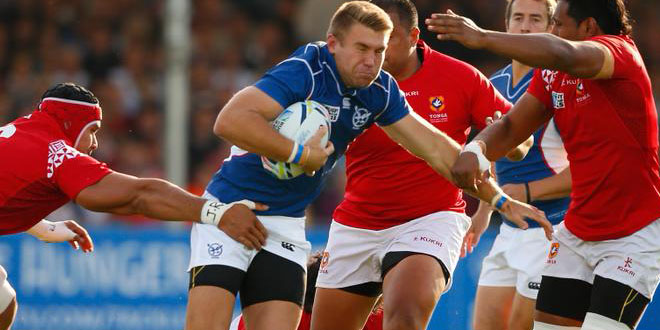The tide has turned; North America now feels the effects of a global imbalance in World Cup qualifying. Chile and Uruguay both qualified for Rugby World Cup 2023 ahead of North American opposition. This is a fundamental change. It follows repeated cycles wherein Sudamérica Rugby requested changes in the qualifying system for South America 1 to qualify directly for World Cups.
Sudamérica Rugby‘s requests were not attended to by World Rugby. The USA qualified for RWC 2019 as Americas 1. The Eagles did so by defeating Canada. The North American winners received direct qualification. This was also the case in RWCs 2011 and 2015 when Canada defeated the USA to be Americas 1 and qualify directly without facing a South American opponent.
South American authorities argued for South America 1 to also qualify directly. This would match North America 1 as well as Africa 1, Oceania 1 and Asia 1. With Uruguay qualifying ahead of Canada for Americas 2 for RWC 2019 and the team going on to beat Fiji there was hope the this may be granted. Namibia’s pathway was viewed, within South America, as easy and unfair compared to Uruguay’s.
Instead of altering Americas 1 and 2 to have North America 1 and South America 1 as separate the decision was to combine them. The change brought with it two outcomes. First, Chile eliminated Canada and Uruguay qualified ahead of the USA as Americas 1 for RWC 2023. Second, Chile defeated the USA to qualify as Americas 2.
The pathway for teams to qualify for the Rugby World Cup is varied across regions. 2023 will be the first Men’s World Cup without Canada and it may be the second without the USA. Canada missed out after losing against Chile on aggregate. The Eagles’ loss to Chile sent them into repechage where they await Portugal, Kenya and Hong Kong.
Kenya finished as Africa 2 behind Namibia and Hong Kong were Asia Pacific runners-up to Tonga. On the one hand, Chile faced RWC 2019 competitors Uruguay, Canada and the USA in qualifying matches. On the other hand, Namibia did not face teams from RWC 2019 in their qualifiers. Tonga lost against Samoa in 2021 to advance to the Asia Pacific Qualifier against Hong Kong. Neither Kenya nor Hong Kong have ever played in a Rugby World Cup. This contrasts greatly to how Chile qualified.
The match results also contrast across regions. Tonga’s pathway was to defeat a team with no prior RWC experience and the result was a comfortable victory without many frontline players. Namibia also had few problems in defeating Kenya, Burkina Faso and Zimbabwe. Unlike in these regions, qualifying results in the Americas and Europe featured narrow victories. North America now feels the effects of global unbalance in World Cup Qualifying.
Tonga and Namibia had easier routes to qualify for the World Cup than did competitors from the Americas and Europe. Is it simply a reflection of geography? With Africa 1 having a direct spot and South America not there is a problem in responding yes.
The qualifying process will likely be altered again for RWC 2027. With the USA being the host for RWC 2031 it is safe to suggest that World Rugby will be seeking a manner for the USA to qualify safely and not via repechage. Chile and Uruguay have turned the Americas on its head. In doing so, they have done Europe a favor. A 24-team Rugby World Cup would see more slots for Europe and the Americas but possibly not for Africa and Asia.
 Americas Rugby News Rugby news from across the Americas!
Americas Rugby News Rugby news from across the Americas!




